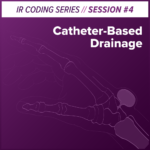The American College of Physician Advisors (ACPA) has responded to a Centers for Medicare & Medicaid Services (CMS) request for recommendations for improvements to the Medicare Advantage program with a detailed position paper outlining a wide variety of proposed changes.
In an April 24 letter to U.S. Secretary of Health and Human Services Tom Price and CMS Administrator Seema Verma, more than a dozen ACPA officials praised the concept of Medicare Advantage under Part C – but strongly suggested that far more oversight and controls are desperately needed.
“Medicare Part C offers several potential advantages to Medicare beneficiaries and to (CMS). MAOs (Medicare Advantage Organizations) are already required to provide all of the benefits of traditional Medicare,” the letter read. “Among the potential advantages to beneficiaries are receiving benefits which would not otherwise be covered by traditional Medicare, such as vision and dental benefits, prescription drug coverage, and wellness programs. The principle benefit to CMS is fixed program cost, as the third party assumes both financial risk and administrative claims responsibilities.”
Yet, the letter continued, “our members have repetitively insisted that stronger oversight of MAOs is needed as the current process has led to increasingly wasteful amounts of plan-related administrative burden imposed on hospitals in order for them to be fairly reimbursed for the care they provide. This has resulted in many clinical support personnel spending the majority of their productive time meeting these individual MA Plan-specific rules, rather than focusing on the many complex issues surrounding beneficiary care.”
The ACPA – which defines itself as a national organization of physicians and other professionals who strive to “bridge the gap between the clinical, financial, regulatory, and compliance worlds” – continued to say that its members strongly believe that regulations governing Medicare Advantage feature ample room for improvement to provide greater standardization, clarity, and transparency for the operations, obligations, and responsibilities of MA Plans. This would be in order to prevent what the organization labeled “cherry picking,” or selective enforcement of Medicare rules by the MA Plans to their own benefit.
“Both contracted and non-contracted providers are experiencing these issues, but contracted providers are affected to a much greater extent due in part to the lack of CMS-granted appeal rights. Contracted providers are under increasing pressure to become non-participating with MAOs as non-contract providers receive non-discounted traditional Medicare payments and have standard Medicare appeal rights,” the letter explained. “These issues affect the majority of hospital providers, so clear regulatory intervention and strong policy guidance from CMS are needed. CMS should monitor for beneficiary safety and access as providers withdrawing from MA Plans could threaten MAO network adequacy and beneficiary choice.”
The ACPA’s position paper identified the following issues it described as critical to understanding the necessity for efforts to improve Medicare Advantage:
- What it interpreted as “selective enforcement” of two-midnight rule policies it said were “beneficial to MAOs, such as level-of-care interpretations that lead to significantly fewer inpatient admissions and more prolonged observation stays than the rule would require.”
- “Inordinate delay” in approval of sub-acute rehabilitation.
- “Nearly universal” refusal to approve acute inpatient rehabilitation.
- Provision of concurrent or prospective inpatient authorization with subsequent retrospective denial of payment for inpatient care.
- “Inconsistent allowance” for “full Part B” rebilling if services are determined retrospectively to have been more appropriately delivered in outpatient status. (“The MA Plan may determine retrospectively it will only approve outpatient level of care,” the paper read, “but then may not provide an avenue for rebilling, resulting in complete non-payment for the hospitalization.”)
- “Aggressive denial” of diagnoses through coding validation as well as clinical validation: Definitions used in clinical validation are “often not provided or are inconsistent with the current definitions offered by governing clinical societies,” the paper read.
- “Refusal to acknowledge and communicate” with contracted providers who have a valid Appointment of Representation signed by the beneficiary to allow the provider to represent them.
As such, the ACPA made the following recommendations to CMS, reprinted here in their entirety:
- Require MAOs to follow the two-midnight rule and associated regulations and sub-regulations.
- Stop the effective subsidy of Part C plans by CMS and providers through level-of-care determinations more stringent than the two-midnight rule.
- Require a per diem payment to hospitals for delayed sub-acute rehabilitation approval decisions.
- Consider requiring auto-approval if the patient has had three consecutive inpatient midnights of medically necessary care within the past 30 days, as with standard Medicare.
- Require that concurrent level-of-care approvals within NCQA concurrent review time frames not be subject to hindsight denial.
- Allow “full Part B” rebilling for inpatient cases denied by MA Plans retrospectively or upon provider self-audit.
- Require MAOs to make their definitions of clinical diagnoses fully transparent: Involve impartial third parties such as governing clinical societies in definition development and require MAOs to submit any diagnoses removed from claims to CMS, ensuring those same diagnoses for the same dates of service are not submitted as HCCs through RAPS/EDS, thus preserving the integrity of the Medicare Trust Funds.
- Require “denials” for 30-day readmissions to describe an actual quality-of-care issue from the first hospitalization. Require a “denial” to be called a denial so that CMS can accurately track denial activity.
- Require MAOs to follow the Medicare Inpatient Only List.
- Provide contracted providers with the same appeal rights as provided by traditional Medicare and as offered to non-contracted providers.
- Require MAOs to acknowledge providers who have a valid AOR from the beneficiary and communicate with the designated representative as they would with the beneficiary or the beneficiary’s family member.
“The ACPA Government Affairs Committee and Board of Directors would be happy to provide further information and engage more extensively with CMS to improve the implementation of the Medicare Part C program,” the organization officials concluded.













